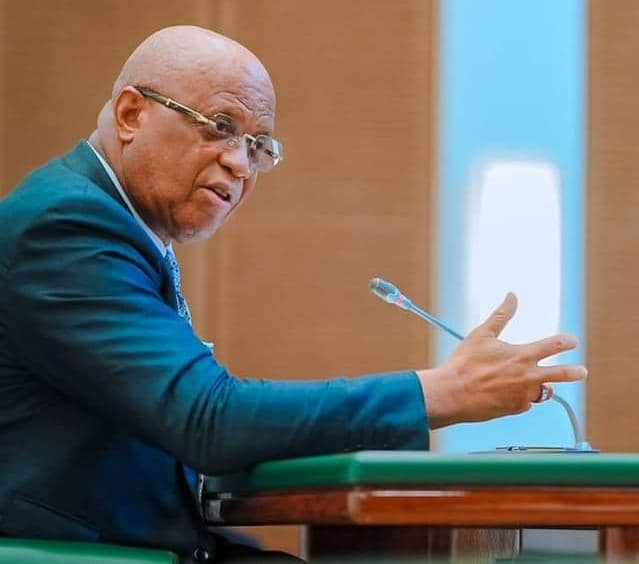LAGOS – Analysts have implored the monetary authority to maintain its interventions, particularly during periods of liquidity shortages.
They predicted that foreign exchange market liquidity will remain strong, driven by inflows from foreign portfolio investors (FPIs), supported by attractive carry trade opportunities and a relatively stable naira.
They also warned that the release of January’s CPI data will influence the direction of market activities.
They maintained the medium-term expectation of a moderation in yields will be the resultant effects of anticipated direction of monetary policy administration, and slower borrowing pace by the Federal Government.
The CBN’s recent report has indicated that naira depreciated by 0.5% to NGN1,509.70/USD at the Nigerian Foreign Exchange Market (NFEM) even as the CBN intervened, selling c. USD66.45 million to authorised dealers.
Besides, the country’s foreign exchange reserves maintained its downward trend, declining by USD307.19 million w/w to USD39.10 billion (13 February).
According to the report, in the forwards market, the naira rates decreased across the 1-month (-0.3% to NGN1,554.01/USD), 3-month (-0.6% to NGN1,633.36/USD), 6-month (-1.0% to NGN1,749.31/USD) and 1-year (-1.1% to NGN1,948.97/USD) contracts.
Cordros Securities Researchers, in their ‘Weekly Economic and Market Report’ noted that foreign exchange inflows were robust in the short term as a result of the apex bank EFEMS that improved market confidence.
” In the near term, we expect foreign exchange market liquidity to remain strong, driven by inflows from foreign portfolio investors (FPIs), supported by attractive carry trade opportunities and a relatively stable naira.
“However, global uncertainties, including the ripple effects of US trade tariffs, pose a significant risk.
“Additionally, we anticipate that the CBN will maintain its interventions, particularly during periods of liquidity shortages.
“As a result, we foresee the naira holding steady in the short term”.
Mr. Adewale Oyerinde, Director General of the Nigeria Employers’ Consultative Association (NECA), in a chat with Daily Independent, stated that the EFEMS new policy of the CBN may be a game-changer that could bring transparency and efficiency to foreign exchange trading in Nigeria and positively solve some of the nation’s foreign exchange problems.
He argued that the sturdy performance in FPI inflows to improve investor confidence and increased FPI participation in the Nigerian Capital Market as naira yields remain attractive.
Oyerinde,maintained that the naira has continued to fall across official and unofficial foreign exchange (FX) as speculators continue to taunt the market.
He said: “As the apex bank mandated a minimum trade value of $100,000, platform as designed may streamline interbank foreign exchange trading, reduce counterparty risks, and ensure adherence to CBN regulations”.
He added: “The move by the CBN to digitiseforex transactions may bring stability to the forex market and ensure better systems as traditional systems face inefficiencies, speculative trading and limited transparency, contributing to market distortions.
“Private investors are worried that since the naira was devalued last year, it has lost over 70 percent of its value, making it one of the worst performing currencies in the world due to a number of reasons such as poor supply of dollars, poor oil production and foreign exchange speculations”.
Commenting on the impact of the increased FPI on the exchange rate, Oyerinde said: “It is on record that when FPIs flow into the stock market, it impacts the foreign exchange market positively as the rate in the foreign exchange market is determined by demand and supply dynamics. This in turn also boosts foreign reserves, but the increase in FPI is also indicative of rising foreign investors’ confidence in the market which may not impact as expected on the economy at large.
“In a nutshell, the jump in the overall foreign investment inflows in the nation’s economy may be the improvement in investor confidence driven by the government’s fiscal and monetary reforms”.
The executive director of a new generation commercial bank, who craves anonymity, told Daily Independent that there is need for urgent steps to be taken by the apex bank to ensure a better macroeconomic management framework to stabilise the exchange rate, eradicate the challenge of liquidity in the foreign exchange market and to stem the current depreciation of the Naira
The financial expert noted that the foreign exchange inflows may remain robust in the short term, supported by improved market confidence, following the implementation of the Electronic Foreign Exchange Market System (EFEMS).
“Looking ahead, the CBN’s EFEMS is part of the efforts to make the market more transparent and liquid by mandating banks to show their real-time quotes and matching order, supply to available rates, according to market reality”.
“We are very optimistic that the new guideline is expected to improve transparency, efficiency, and compliance in Nigeria’s foreign exchange market and that the pathway to economic growth has been constructed by the CBN, but we are wary that plans might not be sufficient to incentivise foreign exchange repatriation.
Dr Muda Yusuf, Founder/CEO Centre for the Promotion Of Private Enterprise (CPPE), told Daily Independent, that the decision taken by the CBN on EFEMS could enhance the potential of the non-oil sector to become a major source of foreign exchange earnings and the driver of economic growth by boosting local business activities to support export activities and strengthen channels for dollar inflow.
“The CBN’s newly introduced Electronic Foreign Exchange Matching System (EFEMS) is a positive step towards greater transparency and efficiency in the foreign exchange market”, he said.
He implored the monetary policy authority to recalibrate its reform policies aimed at preserving price and financial stability in the country as well as harnessing the gains from the African Continental Free Trade Agreement (AfCFTA).
Auwal Ibrahim Musa (Rafsanjani), Executive Director of Civil Society Legislative Advocacy Centre (CISLAC), advocated the need for business friendly reforms and policies that will restore confidence, improve the regulatory environment.
He added: “There is need for not only competitive returns, but also investors’ confidence and an enabling environment in which clear and robust policies, good infrastructure and business friendly regulations are a major component”.




 1 week ago
31
1 week ago
31








 English (US) ·
English (US) ·